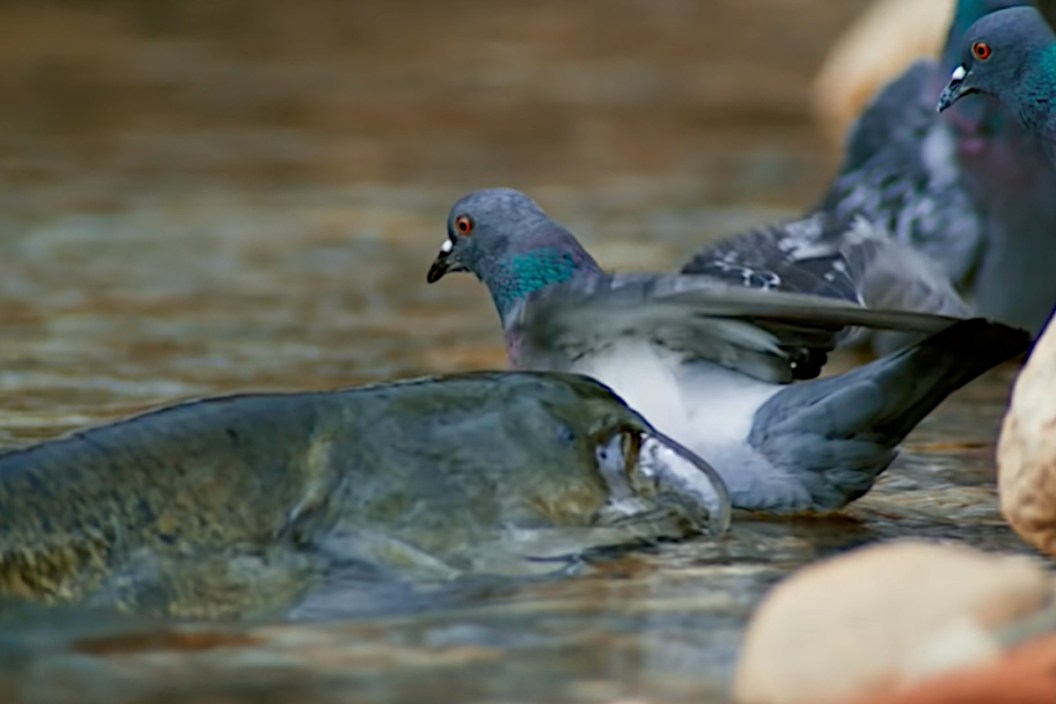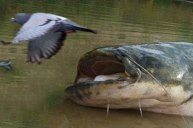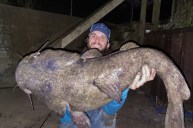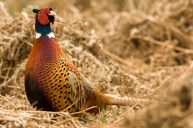Pigeons are now falling prey to the wels catfish on a regular basis.
We humans have done a lot to change the landscape of the Earth and how the wildlife that live here reacts to us over time. Humans have introduced countless species to places where it previously did not live. Some of these species prove to be more successful than others depending on how resourceful the animal is.
In the case of the wels catfish (Silurus glanis), it has proven to be an extremely adaptable predator. This huge, European catfish can reach weights approaching 300 pounds. It is also more aggressive than most catfish you have probably caught before.
In France, the wels has decimated the native fish populations of local rivers due to its seemingly endless appetite. When the native fish supply starts to run low, the catfish simply found another food source. Somehow it has learned how to catch pigeons bathing in the rivers. The wels accomplishes this by nearly beaching itself in shallow water. It is a feat you must see to believe.
We are starting to hear more and more about the wels catfish as they have now spread all over Germany, Poland, Hungary, Turkey, Kazakhstan, Greece, Spain, and parts of Asia. Nature designed this fish to be a bottom feeder. However, it seems they are adapting more aggressive hunting techniques. Perhaps because they have eaten almost every other fish in the waters they have been introduced to in recent years.
Wildlife officials in the United States have noticed the proliferation of the wels across Europe. Many are keeping a close eye out to make sure this species does not get introduced over here. One can only imagine the effects on North American waterways if this species was allowed to swim unchecked here. Because the wels is anything but picky about what it eats.
It seems that life found a way for this hardy species to keep going, even when their food has seemingly been decimated. The wels truly is a fascinating fish, and a cautionary tale on the dangers of introducing a fish species to waters it is not native. Although we are betting most city dwellers do not mind if they reduce the pigeon population a bit!
Products featured on Wide Open Spaces are independently selected by our editors. However, when you buy something through our links, we may earn a commission.
For more outdoor content from Travis Smola, be sure to follow him on Twitter and check out his Geocaching and Outdoors with Travis YouTube channels.
NEXT: THE AXIS DEER AND HOW THEY'RE IMPACTING PARTS OF THE UNITED STATES
WATCH





